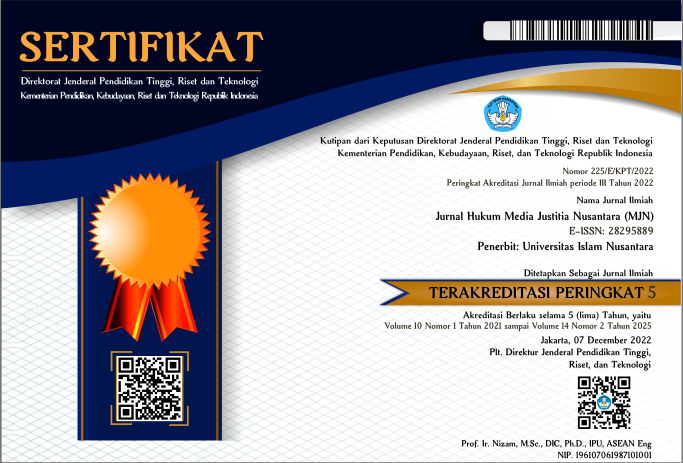IMPLEMENTASI PRINSIP KEMATIAN TERHADAP PEWARIS MAFQUD DALAM HUKUM ISLAM DI INDONESIA: ANALISIS YURIDIS DAN KONTEKSTUAL
DOI:
https://doi.org/10.30999/mjn.v14i1.3389Abstract
Every individual will face the legal event of death, which in Islam forms the foundation of the inheritance system. This death leads to the transfer of assets from the deceased heir to their beneficiaries. In Indonesia, however, there are cases where an heir is declared missing (mafqud) and their status alive or deceased remains unknown. This study investigates the application of the principle of death in Islamic law concerning mafqud heirs through juridical and contextual analysis. Using a qualitative approach with a descriptive-analytical method based on library sources, the research reveals that the principle of waratsa in Islam, derived from Quranic verses like Surah an-Nisa 11-12 & 176 and Surah an-Naml 16, involves asset transfer after death, whether literally or legally. For a mafqud heir, determining their legal status involves two main factors: authentic evidence consistent with Sharia and the passage of time or expiration. Judges must also consider the circumstances of the heir’s disappearance and refer to Articles 467 & 468 of the Civil Code. These considerations help establish the death status of a mafqud heir, ensuring the inheritance process aligns with Islamic law in Indonesia.
Downloads
Published
How to Cite
Issue
Section
Citation Check
License
Copyright (c) 2024 JURNAL HUKUM MEDIA JUSTITIA NUSANTARA

This work is licensed under a Creative Commons Attribution-NonCommercial-NoDerivatives 4.0 International License.












